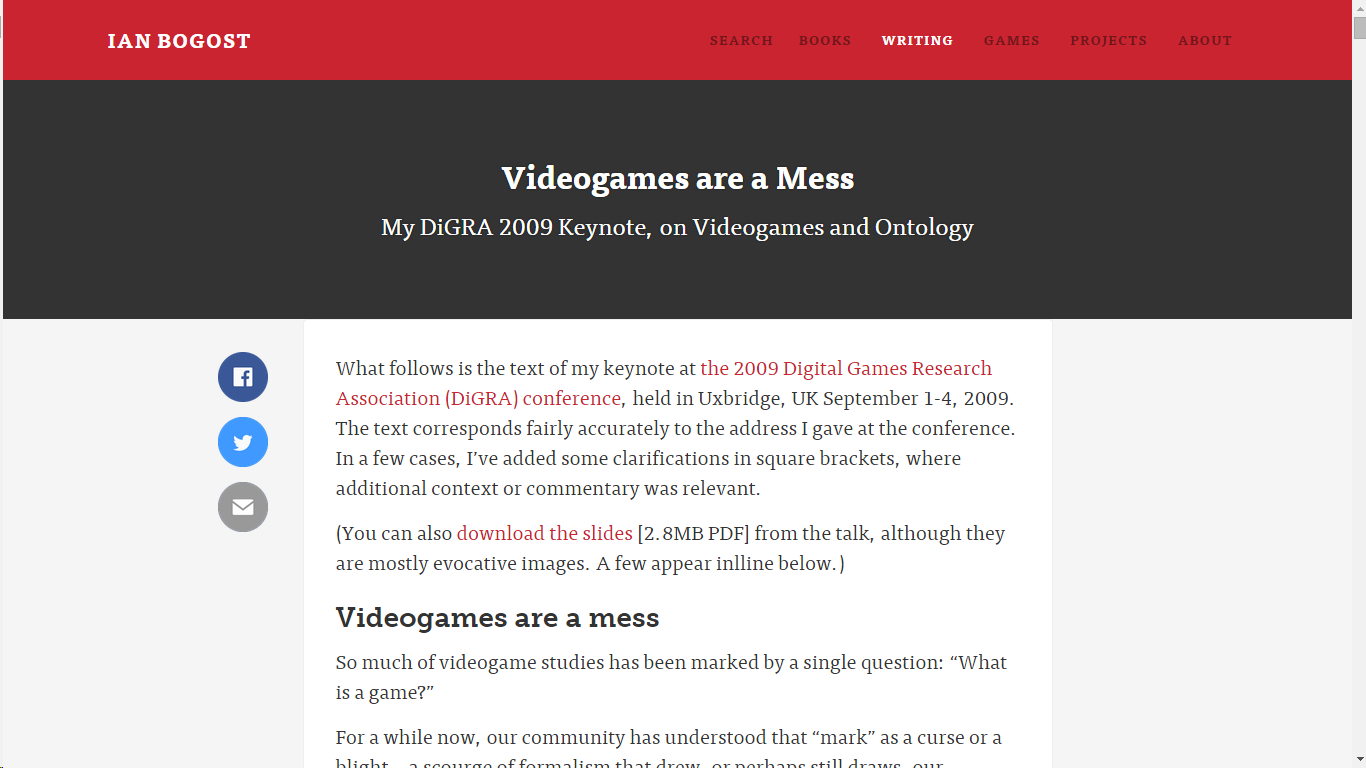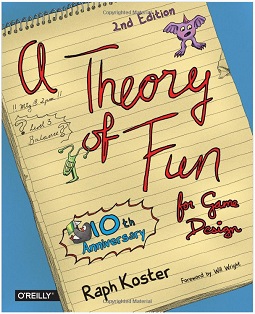About
Author: Dan Golding
Publisher: Dan Golding (Tumblr)
Pages: N/A
Description
“When, over the last decade, the playing of videogames moved beyond the niche, the gamer identity remained fairly uniformly stagnant and immobile. Gamer identity was simply not fluid enough to apply to a broad spectrum of people. It could not meaningfully contain, for example, Candy Crush players, Proteusplayers, and Call of Duty players simultaneously. When videogames changed, the gamer identity did not stretch, and so it has been broken.” – Dan Golding, “The End of Gamers.”
Steve Wilcox is an assistant professor in the Game Design & Development program at Wilfrid Laurier University where he researches & creates knowledge translation games. He is also the co-founder & former editor-in-chief of First Person Scholar.

